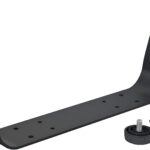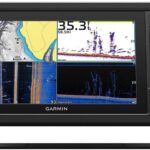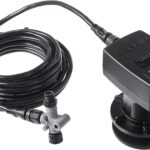Whether you’re an experienced angler or a budding fishing enthusiast, you might be wondering which fishing method best suits you. The tranquility of shore fishing certainly has its allure, but the thrill of boat fishing can be hard to resist as well. The article “Shore Fishing Vs. Boat Fishing: Which Is Right For You?” aims to assist you in making this decision. It provides an in-depth comparison of the two methods, covering aspects such as equipment, locations, costs, and the types of fish you’re likely to catch. By the end of it, you should have a clearer idea of which method aligns better with your fishing goals and preferences.
Understanding Shore Fishing
It’s quite exhilarating to get away from the hustle and bustle of city life and kick off your shoes to unwind by the water. One way to enjoy the peace of the outdoors is through shore fishing. When you hear the term shore fishing, it simply means fishing from the edge of a body of water like a beach, harbor, or river bank. It is a serene and often rewarding way to relax and enjoy nature.
Defining Shore Fishing
Shore fishing is defined as fishing from any locale where land meets water. This can be from the banks of a slow-moving stream, the edge of a lake, or even from a dune overlooking the sea. It is not limited to specific species of fish and can thus provide quite a varied catch, depending on your location.
Different Types of Shore Fishing
Shore fishing comes in several varieties. Surf fishing requires you, the angler, to stand on the shoreline or wade into the surf. It’s a popular form of shore fishing as the oceanic waves bring a variety of species close to the coast. Pier or dock fishing is another type, which involves fishing from a pier or dock. The advantage here is that you can reach deeper water without a boat. Lastly, there’s rock fishing which is done from rocky outcrops and cliffs onto the sea or a body of water. Each type has its distinct advantages and hence can provide different opportunities to catch fish.
The Equipment Needed for Shore Fishing
When it comes to equipment for shore fishing, you don’t need anything highly specialized. A fundamental fishing rod of medium weight, a reel equipped with 14-20 pound test line, varied sized weights, a selection of hooks, and a simple bait would suffice. It’s also good to have a tackle box to store your gear and a bait bucket. Some may also prefer to use a casting net or fishing trap to catch bait. The choice of equipment can depend on what type of fish you are targeting and your personal preferences.
Understanding Boat Fishing
When it comes to fishing, there’s an undeniable charm in combining a peaceful day out on a boat with the thrill of the catch. Boat fishing refers to fishing done from a boat on a body of water, large or small. The boat allows an angler to reach places that are physically impossible to reach from the shore.
Defining Boat Fishing
Boat fishing can be defined as fishing from a kayak, a dinghy, a yacht, or a specially-equipped fishing boat. The uniqueness of boat fishing lies in the fact that it provides fishing enthusiasts the opportunity to navigate and target different species that inhabit deeper and more inaccessible waters.
Types of Boat Fishing: Saltwater vs. Freshwater
Boat fishing can be classified into two main types: Saltwater and freshwater fishing. Saltwater fishing, also known as sea fishing, is generally done from a boat and can take place anywhere in the ocean. Freshwater fishing often happens in lakes, rivers, and streams. Each type has its unique demands and target species.
Necessary Equipment for Boat Fishing
Equipment for boat fishing is a bit more complex and varied than shore fishing. Along with a sturdy rod and reel, you’ll need anchors, a casting net, bait holders, quality marine electronics such as fish finders or GPS, and potentially trolling motors. Diverse tackle is required for different species, and the type of fishing you plan to indulge in – trolling, bottom fishing, or casting.
Accessibility in Shore and Boat Fishing
When it comes to accessibility between boat and shore fishing, several factors need to be considered such as your location, equipment availability and your physical capability.
Shore Fishing: Easy Access and Convenience
One of the benefits of shore fishing is that it provides ease of access. You can just go to a local beach, riverbank, or lake shore and start casting your line. It also offers the convenience of mobility as you don’t have to worry about transporting a boat or renting one. This makes it a great choice for beginners and casual fishing enthusiasts.
Boat Fishing: Location Specific
Boat fishing provides access to a wider range of locations, but the access to these spots depends on the availability of an adequate watercraft. You can certainly get to those “hard to reach” fishing spots, but you’ll also need a suitable place to launch and dock your boat.
Cost Comparison between Shore and Boat Fishing
While both shore and boat fishing offer different experiences, it’s important to consider the costs of each before you decide on your preferred method.
Assessing the Costs of Getting Started with Shore Fishing
Shore fishing is typically considered to be less expensive than boat fishing. For starters, you only need a cheap rod, some line, bait, and maybe a few lures. Most places also do not require a license for shore fishing, making it a budget-friendly excursion.
Assessing the Costs of Getting Started with Boat Fishing
On the other hand, boat fishing can be more costly. Apart from the cost of the boat itself, you’ll also need to invest in boating equipment, fishing gear, and upkeep of the boat. Additionally, you may need a fishing license depending on your location.
Types of Fish Available in Shore vs Boat Fishing
The type of fish you’ll likely catch varies greatly between shore and boat fishing, mainly due to the difference in water depths and habitats.
Types of Fish Commonly Caught in Shore Fishing
In shore fishing, you typically catch fish that are found in shallow waters. This might include species like striped bass, fluke, or flounder in saltwater, and catfish, carp, or bass in freshwater.
Types of Fish Commonly Caught in Boat Fishing
Boat fishing tends to offer a wider variety of species as you can reach deeper waters. You might catch larger, pelagic species like tuna, marlin, or mahi-mahi in the open sea. In freshwater, species such as walleye, pike, and lake trout are common.
Difficulty Level Comparison between Shore and Boat Fishing
While the general act of fishing is simple, the level of skill required can differ between shore and boat fishing.
Understanding the Skill Set Required for Shore Fishing
Shore fishing usually requires less technical skill than boat fishing. The basic skills include casting your line, waiting for the bite, and reeling in your catch. Learning about different kinds of bait and their proper use may take some practice, but generally, it is quite straightforward.
Exploring the Skill Set Needed for Boat Fishing
Boat fishing, depending on the type of fishing, may require a different and sometimes more advanced skill set. This includes knowledge of how to operate a boat, the ability to use various fishing tech such as fish finders and GPS, proficiency in different types of fishing methods (like trolling or fly fishing), and a good understanding of fish behavior in deep water.
Safety Considerations for Shore and Boat Fishing
As with all outdoor activities, safety should be a priority in both shore and boat fishing.
Safety Guidelines to Consider in Shore Fishing
For shore fishing, pay attention to the tide and water currents, and be aware of the potential for dangerous wildlife, depending on your location. It’s also necessary to protect yourself from overexposure to sun and keep hydrated during the fishing session.
Important Safety Measures in Boat Fishing
Boat fishing has additional safety considerations. It is essential to have lifejackets for everyone on board, have a good knowledge of the water body you’ll be on, as well as up-to-date weather forecasts. Boating regulations and navigation rules should also be strictly observed to avoid any accidents.
The Environmental Impact of Shore Fishing versus Boat Fishing
As fishing enthusiasts, it’s essential that we understand our impact on the environment and take steps to minimize it.
Analyzing the Environmental Impact of Shore Fishing
Shore fishing can sometimes lead to the disturbance of ecosystems, especially when fishing in sensitive areas like river mouths or mangrove systems. Leaving behind fishing line or other trash can also harm wildlife. However, when practiced responsibly, shore fishing has comparatively less environmental impact.
Contextualizing the Environmental Impact of Boat Fishing
Boat fishing can have a more pronounced environmental footprint. Fuel use, possible oil leakage, and noise pollution are some concerns. Moreover, the use of certain fishing techniques can be damaging to the aquatic ecosystem and the sea floor. But similar to shore fishing, adhering to responsible fishing practices like catch and release, complying with fishing regulations and season orders can reduce these impacts.
The Pros and Cons of Shore Fishing
Like any outdoor activity, there are both benefits and drawbacks to shore fishing.
Positive Aspects of Shore Fishing
Shore fishing is accessible, economical, and often less complex than boat fishing. It allows you to enjoy the activity without a huge commitment of time, specialized skills, or resources. There is also the definitely enjoyable bonus of feeling the solid ground underneath, which might be more comfortable for some.
Negative Aspects of Shore Fishing
On the flip side, with shore fishing, you’re limited to the type of fish that come closer to the shore and your casting range. You might also have to share your fishing spot with others, resulting in a less tranquil experience.
Deciding Between Shore and Boat Fishing
Choose between shore and boat fishing is a choice that depends on individual goals and preferences.
Factors to Consider When Deciding on Shore or Boat Fishing
Several factors can help you decide between shore and boat fishing. These include your budget, available time, access to appropriate fishing locations, your desired catch, the required fishing techniques, and even your physical ability.
Understanding Your Fishing Goals and Preferences
Your fishing goals and personal preferences can play a significant role in this decision. If you’re a beginner or if you just want a relaxed fishing experience, then shore fishing might be perfect for you. Conversely, if your goal is to catch specific or larger fish that inhabit deep waters or if you enjoy the adventure of being out in the open water, then boat fishing would be the better option.
To sum up, both shore and boat fishing offer unique experiences with their own set of advantages and disadvantages. While shore fishing allows for a more accessible and budget-friendly option, boat fishing offers the allure of deep-sea catches and more varied fishing methods. Ultimately, the decision comes down to what suits your personal preferences and circumstances best. As long as you follow responsible fishing practices, either choice will provide a wonderful chance to bond with nature.










